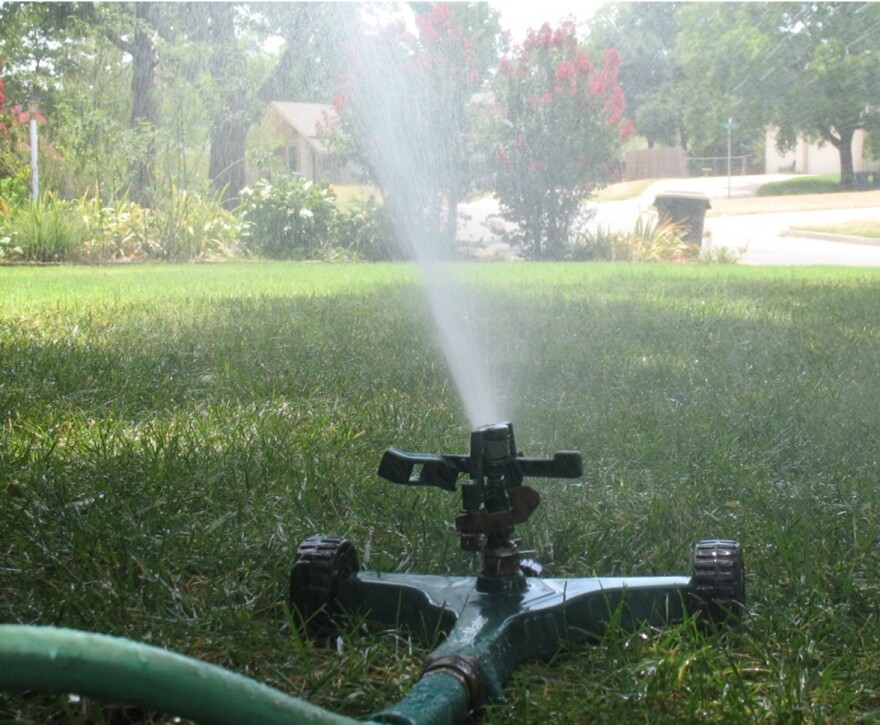Tulsa water customers used 207.3 million gallons Monday and surpassed the trigger point at which City ordinance directs the mayor to ask for voluntary restrictions on outside watering.
If the amount of water used Tuesday surpasses 204 million gallons, it would surpass the trigger point for mandatory restrictions.
Mayor Dewey Bartlett is signing an executive order today asking for the voluntary restrictions.
A city ordinance says that if water use tops 197 million gallons per day (mgd) for two consecutive days, Stage 1 voluntary water restrictions will be asked for. That means customers are asked to limit outside watering to the hours between midnight and noon every other day, based on odd-even address numbers.
If water use tops 204 mgd for two consecutive days, Stage 2 mandatory restrictions will be imposed. Stage two would make those voluntary restrictions mandatory.
If water use tops reaches 210 mgd for two days, watering would be restricted to the hours between midnight and noon every other day and with the use of a hand-held hose only.
If use grows higher, then outside watering could be prohibited.
The trigger levels for restrictions are based on the capacity of Tulsa’s two water treatment plants to deliver water to customers.
Monday’s water use was close to the 207.6 million gallons used on Aug. 1, 2011, which was the highest single-day use ever.
If mandatory restrictions are imposed, violators can receive citations and fines can be from $100 to $500. Tulsa Police officers, City Neighborhood Inspections officers and certain employees of the Water & Sewer Department can issue citations.
Water & Sewer Director Clayton Edwards said the City’s two water treatment plants are operating at optimum levels currently, thanks in part to replacement of two pumps at the A.B. Jewell facility since last summer’s heat wave.
Edwards said the City has long-range plans for expanding the capacity at the A.B. Jewell plant, but that those plans have not been accelerated in the interest of deferring capital costs in order to prevent increases in the rates paid by water customers.
The City also plans to conserve water at its facilities during the high-demand period and City department heads are considering conservation options in their respective operations and facilities.


